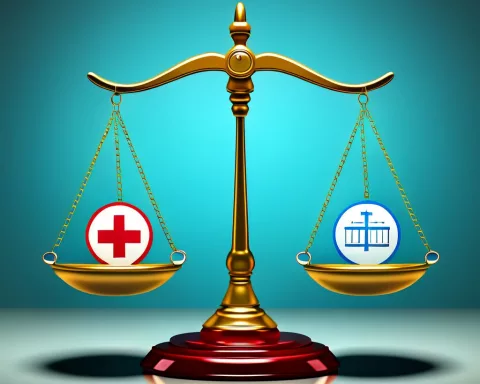South Africa has recently passed the National Health Insurance (NHI) Bill, a significant healthcare policy reform that has been in progress since the adoption of the White Paper on NHI in 2017. The main objective of this reform is to establish a more accessible, affordable, and equitable healthcare system for all citizens.
A New Era of Healthcare in South Africa
The NHI Bill marks the start of a new era of healthcare in South Africa, where the government will be responsible for paying for healthcare services. This change will eliminate financial burdens for citizens seeking medical care, as all South Africans can access the same clinics and hospitals without out-of-pocket expenses.
Stakeholder Involvement
The government has acknowledged the involvement of various stakeholders throughout the development of the NHI Bill. The diverse opinions and perspectives on healthcare reform have enriched the legislative process, and further engagement will be encouraged as the Bill moves to the National Council of Provinces.
Empowering the Government
The NHI will serve as a funding mechanism for the government to purchase healthcare services from both public and private providers. By pooling resources through taxes and special contributions, the government can provide free healthcare for all citizens while compensating healthcare providers fairly, ensuring a sustainable and efficient system.
Healthcare Improvement Budgets
The government has allocated budgets for multiple aspects of healthcare improvement, including the revitalization of healthcare facilities, upscaling training for healthcare professionals, and developing digital information systems. The Health Patient Registration System (HPRS) has already been installed in over 3,000 public health facilities across the country.
Successful Healthcare Integration
The Electronic Vaccination Data System (EVDS) is an excellent example of successful healthcare integration, with extensive piloting during the COVID-19 pandemic. The system facilitated the sharing of vital patient information, such as vaccination records, across the entire healthcare sector.
Gradual Implementation
The implementation of the NHI will be gradual and carried out in phases, allowing ongoing conversations and collaborations between different stakeholders. It is crucial not to backtrack on the progress already made in healthcare reform.
Commitment to Stakeholder Engagement
The Department of Health remains committed to engaging with stakeholders, addressing any concerns that may arise during the implementation process. The objective is to achieve a strengthened healthcare system that can provide Universal Health Coverage for all South African citizens.
Potential for South Africa
With continued collaboration and dedication from all stakeholders, the NHI represents a monumental step forward in improving the health and well-being of all South African citizens. South Africa has the potential to become a model for other countries seeking to create more equitable and accessible healthcare systems.












